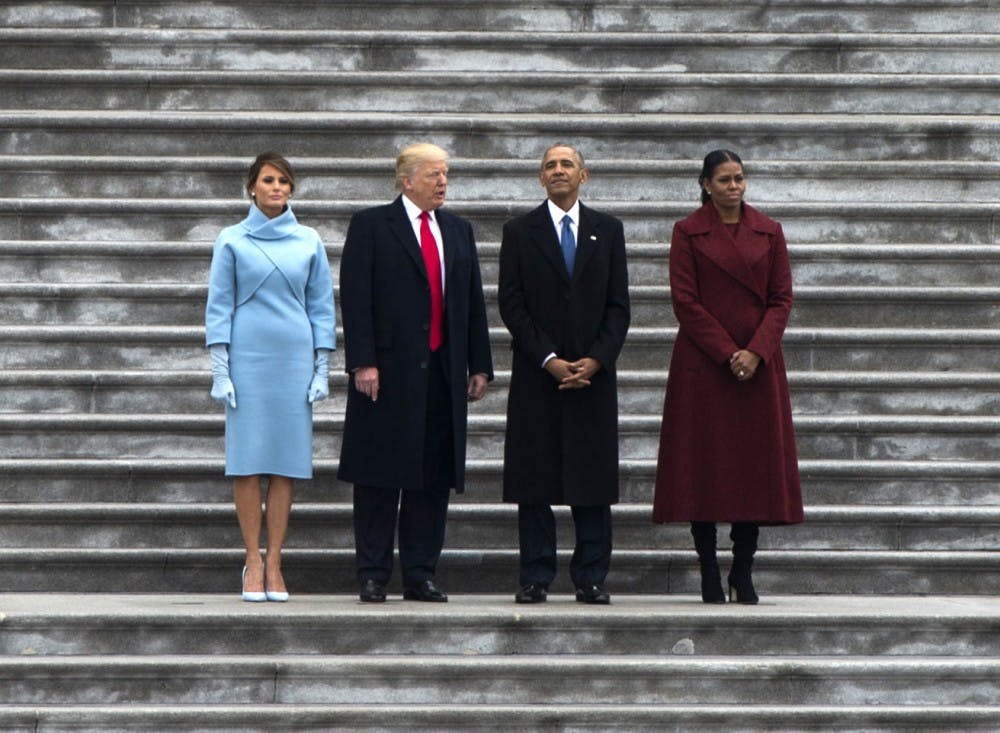Since the election of President Donald Trump, some prominent celebrities have publicly voiced their unwillingness to meet with members of the Trump administration. Ellen DeGeneres won’t have Trump on her show. Former UVA star Chris Long refuses to visit the White House after his historic Super Bowl win. Olympic athlete Gus Kenworthy declined to meet with Vice President Mike Pence, and told him to “eat [his] heart out” in an Instagram photo. The internet’s response to these acts of conscientious abstention was predictable, if not unified. Supporters of the Trump administration scoffed and steamed at the nerve of those out-of-touch celebrities. Critics of the Trump administration, meanwhile, applauded the celebrities’ advocacy, praising the bravery required to turn down the equivalent of a dinner date. Now, after taking a step back and viewing this damage, the results of these acts becomes clear — this “resistance” yielded only further division.
We pay much lip service to reaching across the aisle, to empathizing and relating to others and to compromising and communicating. Our actions, however, tell a different story. Our actions tell us that we have given up on civil communication, that we have instead embraced division and ideological determinism. Is our goal truly to unify, or to divide? Engaging with those we disagree with is difficult — though it is necessary if we wish to do more than sweep society’s problems under the rug.
To discredit the sort of resistance mentioned above, one must dismiss the notion that it is in any way effective in pushing an agenda or advocating for certain issues. First, however, one must acknowledge that these acts are not especially good ways of empowering those who identify with a particular marginalized group. Take the examples of DeGeneres and Kenworthy. These individuals are inspiring Americans because of who they are and what they have achieved. Refusing to meet with members of the Trump administration has little to do with fanning these flames of inspiration or empowerment. There is no encouragement of personal pride, or an affirmation of self-worth — only a political message. The message is that refusing to directly engage with the Trump administration is the best way to advocate for LGBTQ issues and that these actions will combat the air of bigotry that the administration exudes. Once this sort of resistance is understood as strictly political, its efficacy may be honestly appraised. Upon doing so, it becomes apparent that such efforts are not only ineffective at winning over those who are on the fence or in disagreement — they are actively counterproductive.
From the outset of his campaign, Trump has epitomized the “quantity over quality” approach to publicity, and to great effect. Though far from flawless, it may still be argued that his tactless yet deft manipulation of interviews and debates is what won him the presidency. Surely then, DeGeneres is right to deny him an interview, to not even give him a platform from which to proliferate his views. Perhaps not. If one sees Trump’s politics as polarizing and divisive, refusing to engage with them at all does little to combat this. The aforementioned examples of celebrity protest all became stories unto themselves, failing in the goal of denying the administration publicity. Worse, these acts of defiance were used to bolster partisan rhetoric on both sides. As the classic Rush song goes, “If you choose not to decide, you still have made a choice” — in actively avoiding someone, you have only imposed upon them and yourself a default state of disagreement. There is no semblance of discourse, no high ground for either side to occupy.
After these conflicts, we are only left with the same talking points and disagreements which fueled the avoidance to begin with and the kind of shouting from across the room that people like Trump thrive on. Denying Trump and his ilk any sort of platform fails in its primary objective of robbing them of political fodder. Indeed, risky as it may be to engage the administration directly, there is only one guaranteed outcome of refusing to do so entirely — further division, alienation and ideological isolation.
Examples such as those mentioned above are only a few of the most high-profile cases of this unwillingness to engage with our ideological enemies. It is the gut reaction of many people to turn away from conflict or difficulty, to believe that one’s opponents are “others” and assume that their points of view are irreconcilable. Even if debate or conversation fails to convince either party, the very act of peaceful, civil engagement has the side effect of conveying the essential principles of unity and understanding. It directly implies an empathetic willingness to talk things out, to treat others as equals. If we truly hold these ideas in high regard, then we are obligated to engage with even the most deplorable of opponents — indeed, even more so for such people. At the very least, we will set an admirable example. At the most, we might change some hearts and minds.
Benjamin Burke is an Opinion columnist for The Cavalier Daily. He can be reached at opinion@cavalierdaily.com.







